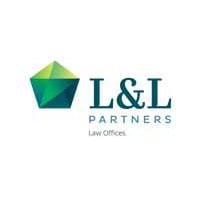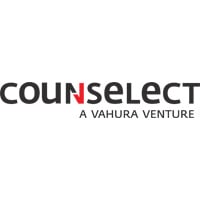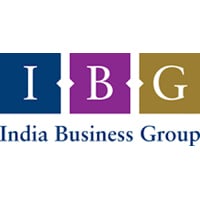
India Teams 2019

| Cisco Systems








Cisco Systems
| Cisco Systems
Cisco Systems, the leading multinational technology conglomerate, has an expert in-house legal team to support its operations in Latin America. Made up of eight lawyers and located in Cisco’s core...
| CISCO Systems Canada
CISCO Systems Canada has an innovative and talented in-house legal team based in Toronto. The team takes the lead in legal matters around CISCO’s cross-Canada sales, negotiations with large service...
Can you briefly explain how the legal team is structured, highlighting key individuals and their role within the department? In keeping with the Cisco legal ethos, the Asia Pacific Service Provider legal team is flat in structure and intentionally lean in staffing. We are currently made up of six regional lawyers supporting each of the five Service Provider sales theatres that Cisco has in the region. The Service Provider line of business is focussed on Cisco’s telecom customers and includes all the major telecom/mobile service providers in the region. The team reports into a legal director based in Bangalore and the average revenue per lawyer for our team is in the US$300-350m range annually. The main focus of the team is on business development (deal making, contracting and project delivery) and related areas including regulatory affairs, knowledge management, integration of acquired companies/ divestitures, dispute resolution, training and compliance. What geographical area does your team cover and what challenges has it faced when covering multiple jurisdictions in the region? As mentioned above, the team covers Cisco’s Service Provider theatres in the ASEAN/Southeast Asia region (which includes 10 countries from Myanmar to the Philippines), Australia and New Zealand, India and SAARC, Japan and South Korea. As can be expected from such a diverse and large region, the key challenge is to understand local practices and translate them into our business model – this could be something as simple as language translations of documents to engaging with regulators in different countries while ensuring that we are in compliance with the law and Cisco’s policies. There is a fair increase around the world in protectionism and market access related issues and our region has also been affected by it – issues as diverse as privacy regulations, data transfer restrictions and geo-political tensions are all top of mind as we try to help build new networks in the region for our customers.
What will be the main focus for the company in the next 12 months and how does the team intend to assist with this? Our focus for the coming 12 months has two separate lenses: the industry lens and the company/department lens. Industry lens: There is no doubt that the telecom industry is going through unprecedented and rapid change. This has had an unfortunate impact on the finances of some in the industry. As an example, in India between 2015 and 2017, the average ARPU, or average revenue per user, of the mobile service providers has fallen from Rs 123 per user to Rs 79 per user – a fall of more than 35%. At Cisco, we believe this is a challenge as well as an opportunity and our focus as a company and a team is to introduce innovative business models and solutions which help our customers either provide better services at less cost or find new streams of monetisation. Our team members are key members of each of the regional leadership teams they support and are actively involved in the development of these solutions and business models. Company related: At Cisco we are shifting gears as a company towards an increased range of SaaS or “as a service” offers with a focus on software. Within the legal team this has created a fantastic opportunity for us to help shape the company strategy. We have lawyers on the team working on projects to help introduce new technologies like 5G, simplify the legal contracting experience, working on projects to improve decision making capabilities amongst stakeholders, experimentation with new technologies such as AI and data analytics and electronic contracting. We have also had people participating in a worldwide “hackathon” helping the company achieve significant results in transforming legal collateral in short, team based, “sprint” style operations across our major centres.
How has the team harnessed technology to improve output or drive efficiencies? Cisco’s legal team has a long history as a pioneer and early adopter of new technology. In the 2000s we were one of the first legal teams in the world to create a digital, cloud based contract approval process (lowering signature times from 24 hours to 4 hours). We have an automated system in place for non-disclosure agreements and use several tools, such as Sharepoint and Webex Teams, regularly to ensure that we are able to collaborate effectively besides giving us significant savings in both time and money. We started using video conferencing and other online collaboration technology before it was mainstream. Today, we are the maker of industry leading collaboration technology such as Webex and Telepresence and our team tends to be the “Customer Zero” for these technologies being early adopters and helping both improve productivity and assist the development of these products.
We have also recently set up a Regional Scaling Engine group which is tasked with identifying and implementing tools, technologies and processes which can help our team in region become more efficient and responsive. Can you sum up the team culture/ethos? Our team ethos is built around three pillars: trust; customer focus; and excellence. 1. Trust: We trust one another. We believe that the team as a whole is what is important – not the individual. We trust our lawyers to do the right thing and will support them in the decisions they make. We have each others’ backs and we guarantee everyone a transparent and “absolutely no politics” environment to be the best version of themselves they can be. 2.Customer focus: We believe each and every member of our legal team is in sales and the reason we get our salary is because a customer is happy with us. This belief is core to everything that we do. Team members are encouraged to take ownership and drive a customer friendly resolution to any issue they see – whether it’s a legal issue or not. 3.Excellence: Our lawyers are expected to draft, analyse and communicate, clearly and concisely, on complex legal issues. They are aggressive, responsive and engaged and are expected to be obsessively inquisitive about the business, so that they can provide context-driven, real-life practical advice.